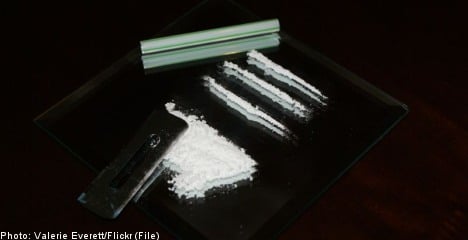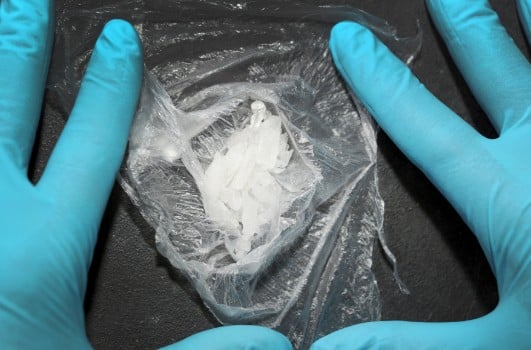“This is the biggest cocaine bust in Swedish history and it was meant for the Swedish market,” Torsten Källander, chief investigator with the Stockholm county police’s narcotics division, told TV4.
The four men all come from the former Yugoslavia and are believed to be a part of a drug smuggling network based out of Montenegro.
The men were arrested in May after police observed how one of the men took possession of a bag from a man in a white baseball hat in a suspected drug deal in Gamla Stan.
Police then followed the buyer and his two accomplices to a flat in the Stockholm suburb of Solna where they found the suspicious bag which turned out to contain four kilogrammes of cocaine.
After using surveillance footage from the Stockholm metro, police were also able to localize the man in the white baseball hat who allegedly sold the drugs.
The day following the initial arrests, the suspected seller – donning the same white baseball hat – was spotted by police at a metro stop in the Stockholm suburb of Farsta.
The man was arrested and had a set of keys with him at the time that police were eventually able to tie to a flat in Fagersjö.
During a subsequent search of the apartment, police found more than 20 kilogrammes of cocaine stashed about the refrigerator as well as 17.5 kilos in a compartment beneath the floor.
In all, police confiscated 42.5 kilogrammes of cocaine in the operation police suspect is controlled by a drug smuggling network based in Montenegro.
On Thursday, prosecutor Kristina Lindhoff Carleson filed charges of aggravated narcotics crimes and narcotics smuggling against the four men in the Solna District Court.
“This is just the tip of the iceberg,” investigator Källander told TV4.



 Please whitelist us to continue reading.
Please whitelist us to continue reading.
Member comments